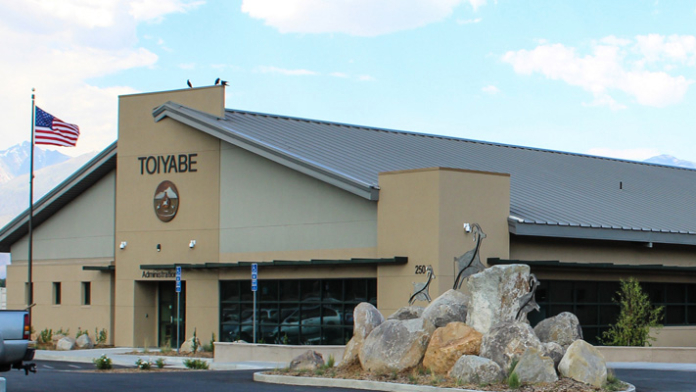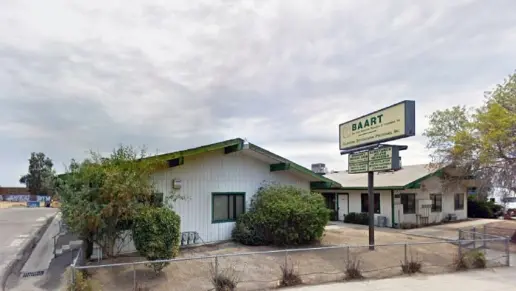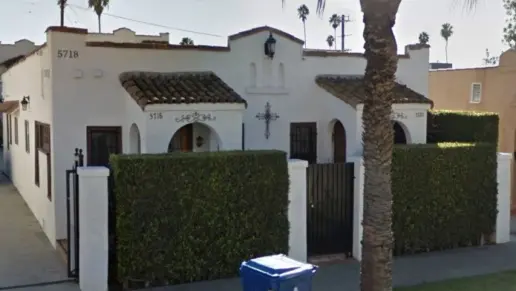About Toiyabe Indian Health Project – Family Services
Toiyabe Indian Health Project is a nonprofit community health clinic. You'll find 'em located out in Bishop, California. They were originally founded way back in 1968 to support American Indians. Now, Toiyabe opens its doors to everyone. They offer family services for substance misuse and co-occurring mental health disorders.You can receive assessments, medication assisted treatment (MAT), and outpatient care. Referrals for inpatient treatment are also offered for acute cases.
Adults can access their substance abuse programs, while their behavioral services are available for all ages. Kids can sign up for intervention programs that help them develop healthy habits and steer clear of drugs.
To make care accessible, they partner with a variety of insurance providers, including Magellan. Many patients use Medicaid, Medi-Cal, or Medicare. If you are American Indian, be sure to ask about enrolling in the Purchased and Referred Care Program. They don’t accept HMOs at the time of writing.
When residential care isn’t necessary, the outpatient addiction treatment program offers the structure and support needed for recovery. With daily recovery groups, including 12 Step options and individual counseling, you’ll find a community. For additional support, contingency management provides positive reinforcement to encourage progress, whether you’re dealing with methamphetamine, alcohol, or opioid use.
Medication assisted treatment can be incredibly helpful for many patients. It offers a balanced, compassionate approach to help work through substance use disorders. By easing your cravings, MAT can help patients focus on recovery work without distractions.
If you have a dual diagnosis, you’ll work closely with the behavioral healthcare team. They personalize their approach to your specific needs, offering therapies like cognitive behavioral therapy. The team also helps with medication management services. They emphasize trauma-informed care, creating a safe space where you feel heard and supported.
Reaching out for when you’re dealing with substance use is a brave step. This program offers a supportive environment and team that really cares about helping patients through recovery.
Rehab Score
Gallery

Location
Accepted Insurance
Other Forms of Payment
Medicaid is a state based program that helps lower-income individuals and families pay for healthcare. Medicaid covers addiction treatment so those enrolled can use their coverage to pay for rehab. When a program accepts Medicaid the client often pays very little or nothing out of their own pocket.
Private insurance refers to any kind of healthcare coverage that isn't from the state or federal government. This includes individual and family plans offered by an employer or purchased from the Insurance Marketplace. Every plan will have different requirements and out of pocket costs so be sure to get the full details before you start treatment.
Self-pay involves paying for treatment out of your own pocket. You can use savings or credit, get a personal loan, or receive help from family and friends to fund your treatment. If you don't have insurance or your insurance plan doesn't cover a specific program, self-pay can help ensure you still get the care you need.
Financial aid can take many forms. Centers may have grants or scholarships available to clients who meet eligibility requirements. Programs that receive SAMHSA grants may have financial aid available for those who need treatment as well. Grants and scholarships can help you pai for treatment without having to repay.
Medicare is a federal program that provides health insurance for those 65 and older. It also serves people under 65 with chronic and disabling health challenges. To use Medicare for addiction treatment you need to find a program that accepts Medicare and is in network with your plan. Out of pocket costs and preauthorization requirements vary, so always check with your provider.
Military members, veterans, and eligible dependents have access to specific insurance programs that help them get the care they need. TRICARE and VA insurance can help you access low cost or no cost addiction and mental health treatment. Programs that accept military insurance often have targeted treatment focused on the unique challenges military members, veterans, and their families face.
Addiction Treatments
Levels of Care
Treatments
The goal of treatment for alcoholism is abstinence. Those with poor social support, poor motivation, or psychiatric disorders tend to relapse within a few years of treatment. For these people, success is measured by longer periods of abstinence, reduced use of alcohol, better health, and improved social functioning. Recovery and Maintenance are usually based on 12 step programs and AA meetings.
Drug rehab in California teaches participants constructive ways to stay clean and sober. Treatment revolves around helping individuals stop using the substance they are addicted to and learn healthy habits to avoid relapse.
Many of those suffering from addiction also suffer from mental or emotional illnesses like schizophrenia, bipolar disorder, depression, or anxiety disorders. Rehab and other substance abuse facilities treating those with a dual diagnosis or co-occurring disorder administer psychiatric treatment to address the person's mental health issue in addition to drug and alcohol rehabilitation.
Opioid rehabs specialize in supporting those recovering from opioid addiction. They treat those suffering from addiction to illegal opioids like heroin, as well as prescription drugs like oxycodone. These centers typically combine both physical as well as mental and emotional support to help stop addiction. Physical support often includes medical detox and subsequent medical support (including medication), and mental support includes in-depth therapy to address the underlying causes of addiction.
Substance rehabs focus on helping individuals recover from substance abuse, including alcohol and drug addiction (both illegal and prescription drugs). They often include the opportunity to engage in both individual as well as group therapy.
Programs


Clinical Services
Research clearly demonstrates that recovery is far more successful and sustainable when loved ones like family members participate in rehab and substance abuse treatment. Genetic factors may be at play when it comes to drug and alcohol addiction, as well as mental health issues. Family dynamics often play a critical role in addiction triggers, and if properly educated, family members can be a strong source of support when it comes to rehabilitation.
Group therapy is any therapeutic work that happens in a group (not one-on-one). There are a number of different group therapy modalities, including support groups, experiential therapy, psycho-education, and more. Group therapy involves treatment as well as processing interaction between group members.
Trauma therapy addresses traumatic incidents from a client's past that are likely affecting their present-day experience. Trauma is often one of the primary triggers and potential causes of addiction, and can stem from child sexual abuse, domestic violence, having a parent with a mental illness, losing one or both parents at a young age, teenage or adult sexual assault, or any number of other factors. The purpose of trauma therapy is to allow a patient to process trauma and move through and past it, with the help of trained and compassionate mental health professionals.
Contact Information
250 N. See Vee Lane
Bishop, CA 93514








